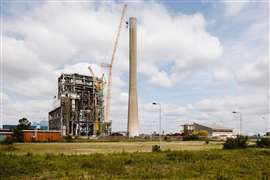CADE confirms cement cartel penalties
30 May 2014
Brazil’s Administrative Council for Economic Defence (CADE) has confirmed fines totalling BRL 3.1 billion (US$ 1.4 billion) and a series of forced divestments for six producers and three trade associations in the cement industry.
Reporting commissioner, Alessandro Octaviani, claimed in January that the cartel had been in place for 20 years, with a cost to society of some BRL 28 billion (US$ 12.6 billion).
He said the cartel had been active in the Brazilian cement and concrete market by fixing prices and sales volumes, and by setting up market sharing agreements and allocating customers to different cartel members. The body of evidence is said to include emails, notes and several documents seized during raids carried out in 2007.
The companies implicated in the cartel are Votorantim, Camargo Corrêa, Cimpor, Holcim, Itabira and Lafarge. Lafarge had previously settled its involvement with CADE through the negotiation of divestments and a fine. Since the case started Camargo Corrêa and Cimpor have merged to form InterCement.
A statement from Holcim, which received a BRL 508 million (US$ 228 million) fine said, “In the context of the proceeding, Holcim Brazil has always supplied all information requested. The company reinforces that it acts lawfully and in accordance with fair competition rules and practices. Holcim Brazil will pursue all available legal steps to defend its position.
“Holcim acts in compliance with laws, including fair competition rules and practices. The company has policies and procedures in place that are designed to ensure compliance with principles and rules of fair competition prohibiting anti-competitive behavior and the abuse of a dominant market position. There is zero tolerance for violations. Non-compliance is subject to disciplinary sanctions up to termination of employment.”
Votorantim, the most heavily penalised of the companies, is also reported to be planning an appeal against the ruling.
In addition to the fines, CADE has imposed the mandatory divestment of 20% of production capacity in the regions in which any of the six companies own more than one plant. The buyer is not allowed to be another member of the cartel and the ruling applies to all shareholdings in plants, including minority interests.
CADE said the 20% was the minimum market share a new competitor would need to have to enable effective competition.
The cartel companies are also barred from making any acquisitions in the cement sector for five years.
STAY CONNECTED


Receive the information you need when you need it through our world-leading magazines, newsletters and daily briefings.
CONNECT WITH THE TEAM











